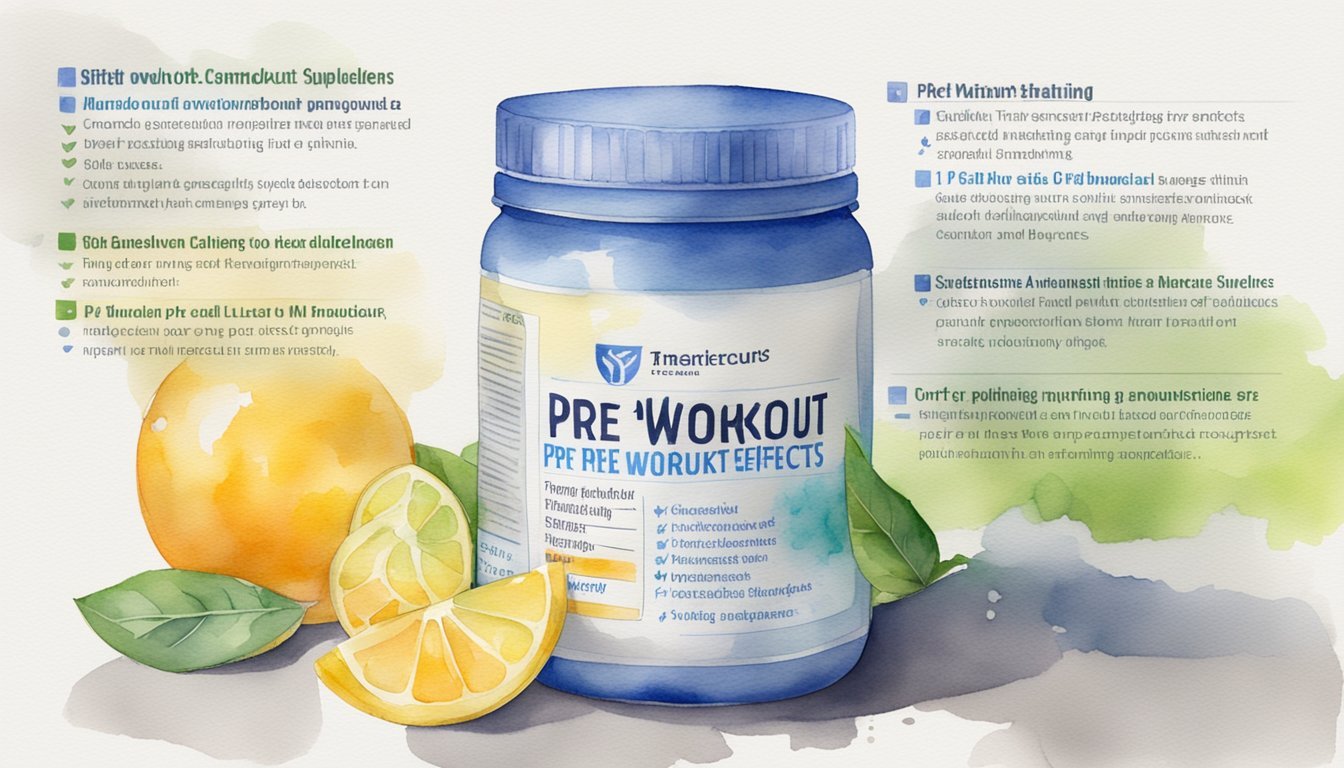Understanding Pre-Workout Supplements
Pre-workout supplements are formulated to boost energy levels and enhance athletic performance during exercise. They contain a variety of ingredients that work synergistically to improve various aspects of training.
Key Ingredients and Their Benefits
Pre-workout supplements often include common ingredients like caffeine for alertness, creatine for muscle strength, and beta-alanine which may aid in reducing muscle fatigue. Additionally, amino acids such as arginine and tyrosine are included to support blood flow and focus, respectively. Many products also contain B vitamins and minerals like sodium bicarbonate and magnesium, which contribute to overall endurance and helps in maintaining hydration.
- Caffeine: Increases alertness and can delay the onset of fatigue.
- Creatine: Helps with short bursts of high-intensity exercise, potentially increasing power and strength.
- Beta-Alanine: Contributes to carnosine production in the body, which may reduce acid build-up in muscles during exercise.
- Amino Acids: Such as arginine boosts nitric oxide, enhancing blood flow, while tyrosine supports cognitive function.
These ingredients vary in dosage and combination, creating a proprietary blend in different pre-workout formulas. It’s important to understand the efficacy of each ingredient and their potential impact on exercise.
How Pre-Workouts Enhance Athletic Performance
By consuming pre-workout powders or pills, athletes may experience increased energy, improved focus, and heightened endurance. The ability to perform more reps or sustain high-intensity exercise for longer periods can lead to more effective training sessions, potentially resulting in faster strength and muscle gains. Here are some ways pre-workouts may enhance performance:
- Energy Supply: Compounds like caffeine and taurine can significantly boost energy and alertness, making it easier to start and sustain a workout.
- Muscle Endurance: Ingredients like beta-alanine may improve endurance by buffering acids in the muscles, allowing for longer, more intense exercise bouts.
- Recovery: Creatine aids in quick recovery between high-intensity efforts, which is crucial during repetitive training like resistance exercises.
Some dietary supplements, including pre-workouts, can enhance training efficacy. However, tolerance varies, and it’s essential to understand appropriate dosages to avoid adverse effects. It’s also a good practice to look for supplements that are third-party tested for safety and quality assurance.
Potential Side Effects and How to Mitigate Them

Taking pre-workout supplements can offer a boost in energy and endurance, but they can also lead to a range of side effects. Understanding these reactions and safe supplementation practices is essential for minimizing risks.
Common Physical and Psychological Reactions
Pre-workout supplements often contain caffeine and other stimulants that enhance focus and energy. However, these can also lead to increased heart rate and blood pressure, which some individuals may find uncomfortable. Furthermore, ingredients like beta alanine can cause a tingling sensation, known as paresthesia, while excess nitric oxide may lead to digestive issues. Other common side effects include dehydration, insomnia, anxiety, and gastrointestinal distress.
To mitigate these reactions, consider starting with lower doses to assess tolerance, and avoid taking these supplements later in the day to prevent sleep disturbances. Adequate hydration is essential and can help reduce the likelihood of adverse effects associated with dehydration.
Safe Practices for Supplementation
It is critical to adhere to the recommended dosages on the product label to minimize potential side effects. Excessive consumption can exacerbate symptoms like jitteriness or restlessness. Selecting supplements with clearly marked ingredients and avoiding those with proprietary blends can help individuals monitor their intake of specific substances.
For those sensitive to caffeine, looking for caffeine-free options or ones with lower milligrams of caffeine could reduce the risk of headaches and anxiety. Additionally, staying well-hydrated and consuming these supplements with food may alleviate some digestive issues. For those experiencing tingling or a flushed feeling, this may be due to ingredients like beta alanine, and the sensation is typically harmless; however, if it persists, one should consult with a healthcare provider.
By following these guidelines, users can better manage their supplementation and lessen the chance of adverse effects.

